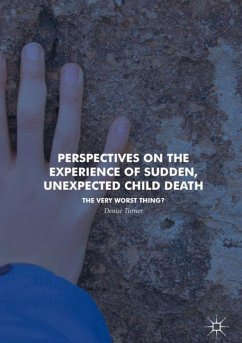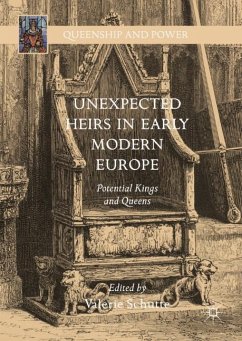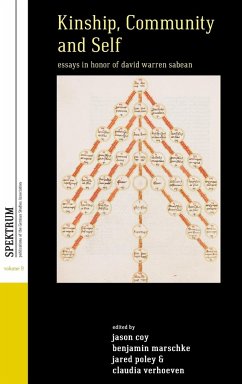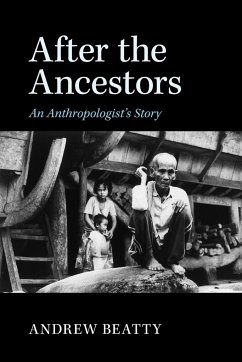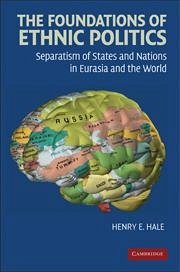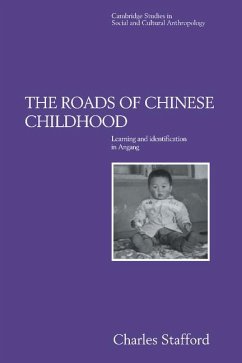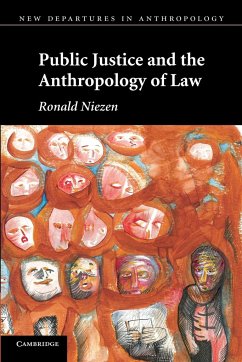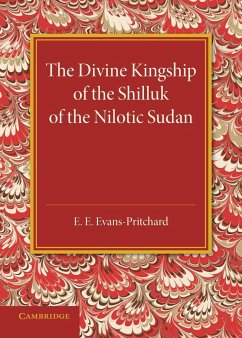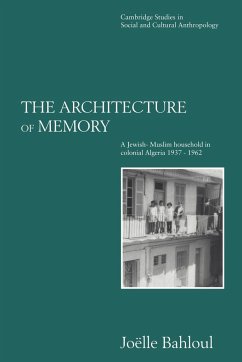
Kinship, Law and the Unexpected
Relatives Are Always a Surprise
Versandkostenfrei!
Versandfertig in 1-2 Wochen
31,99 €
inkl. MwSt.
Weitere Ausgaben:

PAYBACK Punkte
16 °P sammeln!
Short description/annotationExamines Euro-American kinship as the kinship of a specifically knowledge-based society.Main descriptionHow can we hold in the same view both cultural or historical constructs and generalities about social existence(?)33; Kinship, Law and the Unexpected takes up an issue at the heart of studies of society - the way we use relationships to uncover relationships. Relationality is a phenomenon at once contingent (on certain ways of knowing) and ubiquitous (to social life). The role of relations in western (Euro-American) knowledge practices, from the scientific revolut...
Short description/annotation
Examines Euro-American kinship as the kinship of a specifically knowledge-based society.
Main description
How can we hold in the same view both cultural or historical constructs and generalities about social existence(?)33; Kinship, Law and the Unexpected takes up an issue at the heart of studies of society - the way we use relationships to uncover relationships. Relationality is a phenomenon at once contingent (on certain ways of knowing) and ubiquitous (to social life). The role of relations in western (Euro-American) knowledge practices, from the scientific revolution onwards, raises a question about the extent to which Euro-American kinship is the kinship of a knowledge-based society. The argument takes the reader through current issues in biotechnology, new family formations and legal interventions, and intellectual property debates, to matters of personhood and ownership afforded by material from Melanesia and elsewhere. If we are often surprised by what our relatives do, we may also be surprised by what relations tells us about the world we live in.
Table of contents:
Introduction; Part I. Divided Origins: 1. Relatives are always a surprise; 2. Embedded science; 3. Emergent properties; Introduction; Part II. The Arithmetic of Ownership: 4. The patent and the Malanggan; 5. Losing (out on) intellectual resources; 6. Divided origins and the arithmetic of ownership.
Examines Euro-American kinship as the kinship of a specifically knowledge-based society.
Main description
How can we hold in the same view both cultural or historical constructs and generalities about social existence(?)33; Kinship, Law and the Unexpected takes up an issue at the heart of studies of society - the way we use relationships to uncover relationships. Relationality is a phenomenon at once contingent (on certain ways of knowing) and ubiquitous (to social life). The role of relations in western (Euro-American) knowledge practices, from the scientific revolution onwards, raises a question about the extent to which Euro-American kinship is the kinship of a knowledge-based society. The argument takes the reader through current issues in biotechnology, new family formations and legal interventions, and intellectual property debates, to matters of personhood and ownership afforded by material from Melanesia and elsewhere. If we are often surprised by what our relatives do, we may also be surprised by what relations tells us about the world we live in.
Table of contents:
Introduction; Part I. Divided Origins: 1. Relatives are always a surprise; 2. Embedded science; 3. Emergent properties; Introduction; Part II. The Arithmetic of Ownership: 4. The patent and the Malanggan; 5. Losing (out on) intellectual resources; 6. Divided origins and the arithmetic of ownership.





